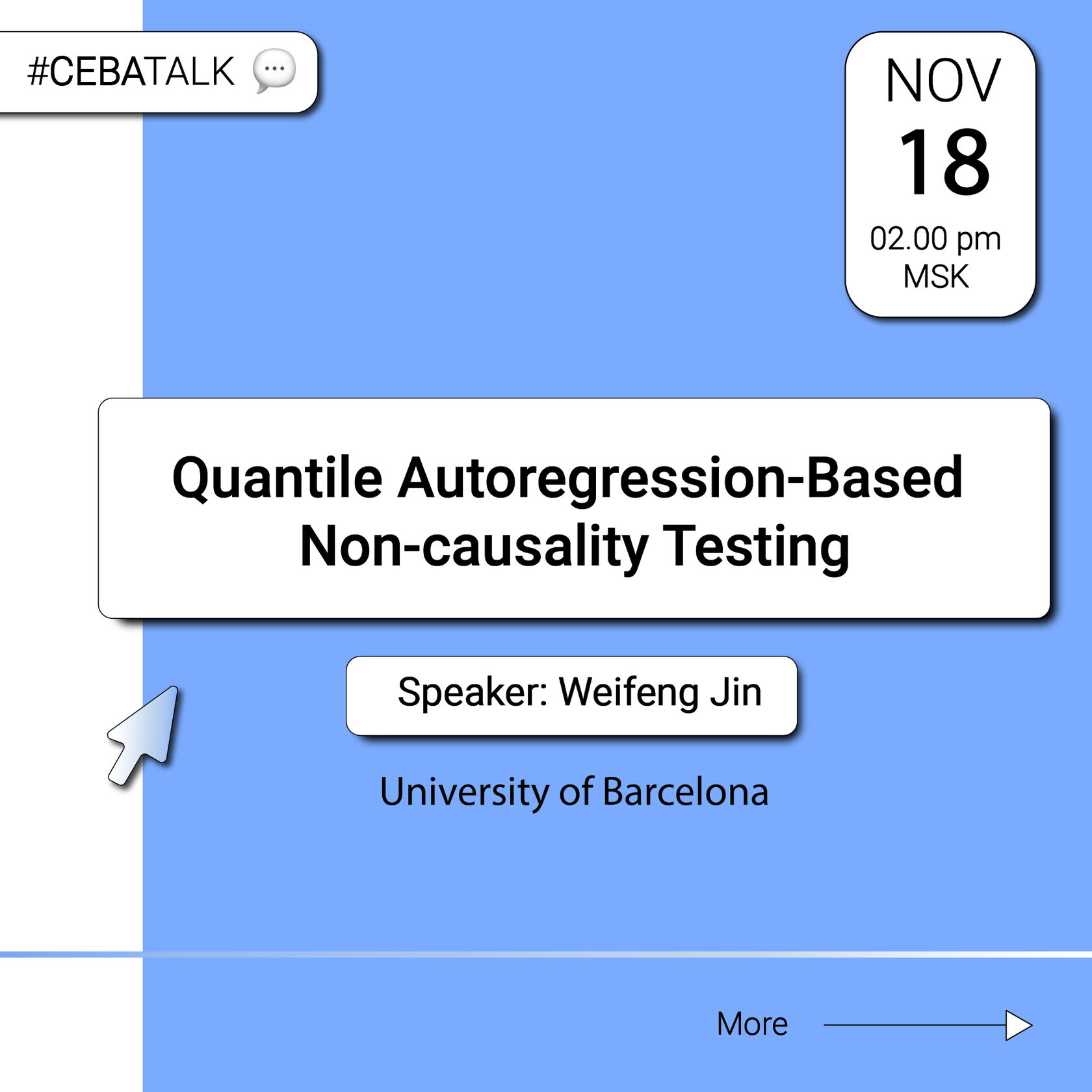Speaker: Weifeng Jin (University of Barcelona)
Title: Quantile Autoregression-Based Non-causality Testing
Field of study
"Econometrics with the main focus on Time Series."
What problem is your research intended to solve?
"The research question is to test for non-causality in a linear time series process. Non-causality indicates the dependence in future plays an non-eligible role on the present value, leading to nonlinear dynamics, which are commonly observed in financial and macro-economic data. In the paper, we aim to detect this attribute of linear time series within the quantile autoregression framework."
What did your research find?
"In the paper, we proposed three testing strategies for non-causality with the assistance of quantile autoregression. The tests produce relatively good performance in terms of power without imposing any parametric assumptions on the distribution of innovations. The tests can be applied to empirical financial sequences to detect the existence of speculative bubbles."
Abstract: Quantile autoregression (QAR) model has been a prevailing tool for carrying out the distributional study of response variables for time series. In this paper, we show that linear non-Gaussian non-causal processes can display "nonlinear" behaviors such as asymmetric dynamics and clustering volatility. Besides, we demonstrate that non-causal autoregression admits at least one nonlinear quantile representation conditional on past observations. On the contrary, the causal model produces constant QAR estimates at any quantile. We propose novel testing strategies for non-causality in the non-Gaussian processes within the QAR framework. Tests are constructed either by verifying the constancy of the slope coefficients or by applying a misspecification test of the linear QAR model over different quantiles of the process. Some simulations are included to illustrate the testing strategies. In the Monte Carlo experiment, we compare different specification tests for dynamic quantiles with the Kolmogorov-Smirnov constancy test in terms of the power of detecting non-causality in finite samples. The extension of the approach based on the specification test to AR processes driven by innovations with heteroskedasticity is studied through simulations. In the end, the methodology is applied to two empirical time series in stock markets to investigate the presence of speculative bubbles. The performance of QAR estimates of non-causal processes at extreme quantiles is also explored with some simulations.
More information, a link to the research and the upcoming seminar here.
We are looking forward to seeing you!
